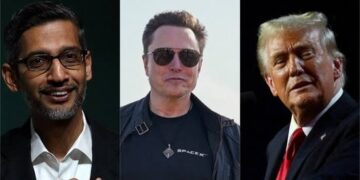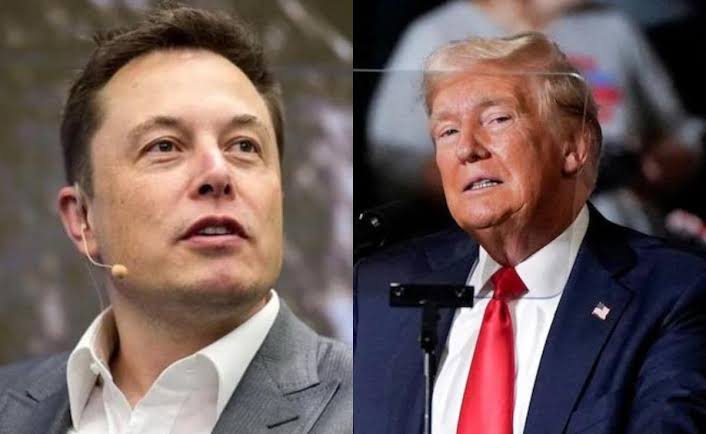New Delhi: Elon Musk has unveiled the long-awaited prototype of Tesla’s robotaxi, the Cybercab, which is set to enter production in 2026 and will be priced below $30,000. This announcement was made at Tesla’s ‘We, Robot’ event on October 11.
Robotaxis are autonomous vehicles designed to transport passengers without a driver.
The Tesla Robotaxi is equipped with two gull-wing doors and lacks a steering wheel or foot pedals. Musk described the experience as sitting in a “comfortable little lounge” where passengers can relax and automatically arrive at their destination.
Additionally, Musk introduced a futuristic concept known as the Robovan, which has the capacity to transport 20 passengers simultaneously, marking a potential shift towards robotics manufacturing.
The Robovan, a passenger vehicle, also comes without a steering wheel or pedals and is designed to seat up to 20 passengers or be modified for cargo transport. However, Musk did not provide a production timeline for the Robovan.
Expected to facilitate autonomous deliveries, the Robovan aims to streamline logistics and reduce operational costs for last-mile delivery services.
Musk, known for his optimistic timelines, suggested a 2026 launch for the Robovan, adding, “Before 2027, to be more precise.” At the same event, Musk also presented Tesla’s Optimus humanoid robot and other autonomous vehicle models.
Musk stated that the cars will utilize AI and cameras, eliminating the need for hardware used by other robotaxi competitors. The vehicles will employ wireless inductive charging and are projected to be ’10 to 20 times safer’ than those driven by humans.
At the event, Musk informed analysts and attendees that Tesla plans to initiate “fully autonomous, unsupervised” driving in Texas and California by 2025 with current models, and begin producing the “cybercab” in 2026.
Bloomberg News reported Nancy Tengler, CEO of Laffer Tengler Investments and a Tesla shareholder, as saying, “The only specific was the $30,000 price point for a Cybercab. The concepts were grand. Is the idea super cool? Absolutely.”
“Everything seems cool, but there’s a lack of detailed timelines. As a shareholder, I’m quite disappointed. The market was expecting more concrete timelines,” Dennis Dick, an equity trader at Triple D Trading, was quoted by Reuters.
Musk has previously been criticized for his optimistic timelines regarding automated mobility. In 2016, he first claimed that automated cars were just two years away, and later promised a self-driving vehicle by 2019.


















